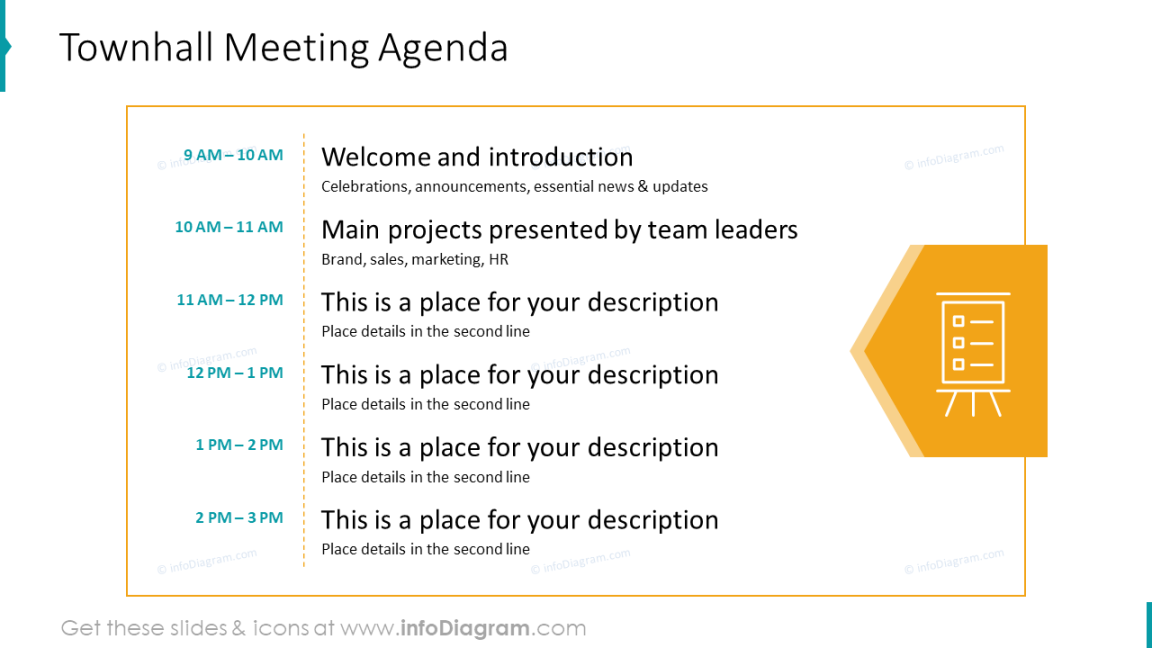A Town Hall Meeting Agenda Template serves as a roadmap for a productive and focused discussion between community members and their representatives. A well-crafted agenda not only ensures that all important topics are addressed but also establishes a sense of order and professionalism. This guide will delve into the essential elements and design considerations for creating a professional Town Hall Meeting Agenda Template.
Agenda Title and Date

The agenda should prominently display the title, typically “Town Hall Meeting Agenda,” and the date of the meeting. These details provide immediate context for attendees and help them understand the purpose of the gathering.
Meeting Location and Time
Clearly indicate the location and time of the meeting. This information is crucial for attendees to plan their attendance accordingly. Consider providing directions or parking information if necessary.
Welcome and Introductions
While this section might be implied, it’s often helpful to include a placeholder for welcoming remarks and introductions. This can be a brief acknowledgment of attendees, speakers, and the purpose of the meeting.
Key Topics and Discussion Points
This is the core section of the agenda where specific topics and discussion points are outlined. Each topic should be concise and informative, providing a clear understanding of the subject matter. Consider using bullet points or numbered lists to structure the topics and subtopics.
Speaker Bios
If there are guest speakers or panelists, include brief bios highlighting their expertise and relevance to the topics being discussed. This helps attendees understand the credibility of the speakers and their contributions to the conversation.
Q&A Session
Allocate a specific time for a question-and-answer session. This allows attendees to directly engage with the speakers and ask questions about the topics presented. Clearly indicate how questions will be collected and addressed, whether through open discussion or a designated moderator.
Closing Remarks
Include a placeholder for closing remarks to summarize the key points discussed and thank attendees for their participation. This provides a sense of closure and reinforces the importance of the meeting.
Contact Information
Provide contact information for relevant individuals or organizations in case attendees have further questions or want to follow up on discussed topics. This demonstrates a commitment to ongoing engagement and transparency.
Design Considerations
To create a professional and visually appealing agenda template, consider the following design elements:
Font: Choose a clear and legible font that is easy to read, such as Arial, Helvetica, or Times New Roman.
By carefully considering these elements, you can create a Town Hall Meeting Agenda Template that is both informative and visually appealing. A well-designed agenda will set the tone for a productive and engaging meeting, fostering open communication and collaboration between community members and their representatives.